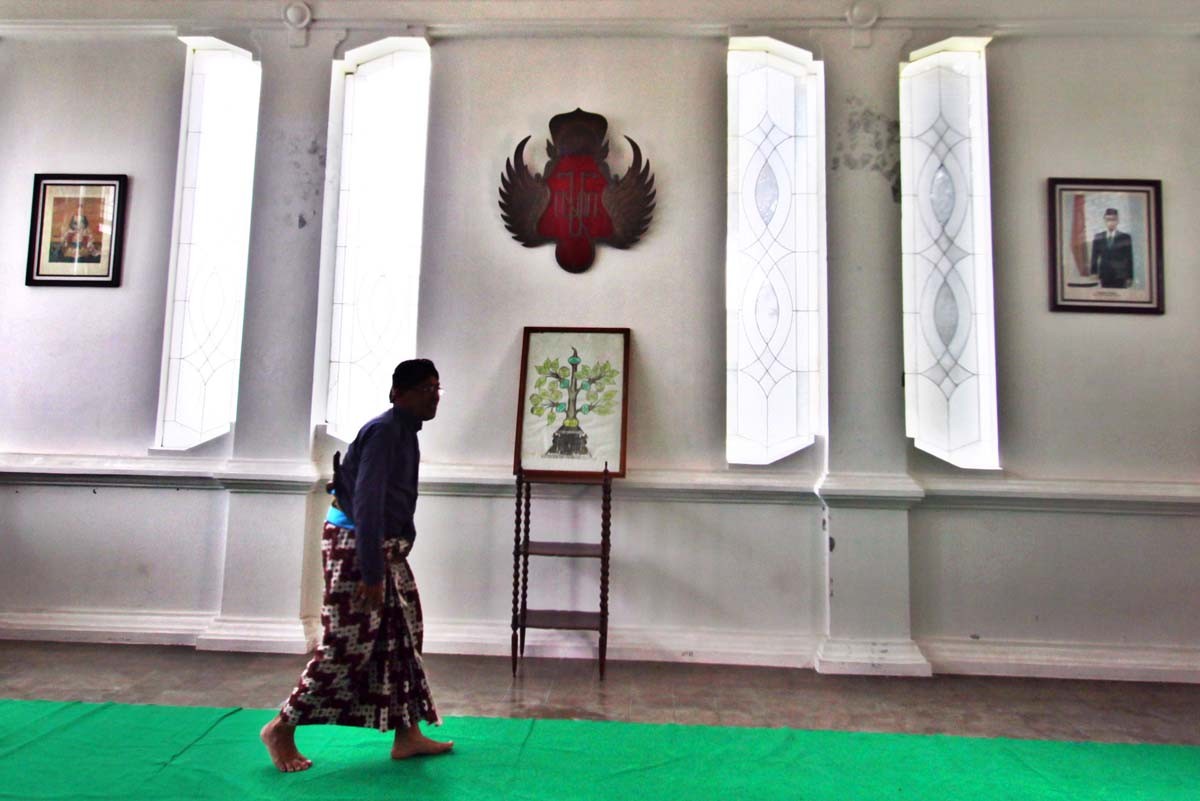Popular Reads
Top Results
Can't find what you're looking for?
View all search resultsPopular Reads
Top Results
Can't find what you're looking for?
View all search resultsYogyakarta sees rising violence among youths
Three 17-year-old students, members of a high school gang called Grixer , were hanging out at a traditional street food stall in Bantul, Yogyakarta.
Change text size
Gift Premium Articles
to Anyone
T
hree 17-year-old students, members of a high school gang called Grixer, were hanging out at a traditional street food stall in Bantul, Yogyakarta.
None of them look like violent thugs, but they all claim to have committed violence against fellow students.
“I once beat a student from another school because he had hurt my friend,” DW, one of the three, told The Jakarta Post.
Recently, Yogyakarta has seen a rising number of cases of violence among students. The locals have a name for violence among students: klitih. From 2014 to March this year, at least six students died and dozens were injured due to klitih.
The latest victim was Ilham Bayu Fajar, a 16-year-old student who died after being stabbed with a sickle, allegedly by fellow student FF, on March 12.
Ilham was riding a motorcycle with his brother when he met FF’s gang members. FF reportedly got furious about harsh words from Ilham and killed him.
FF and other suspects are standing trial at the Yogyakarta District Court since Monday. A group of residents supporting Ilham’s family held a rally at the court, demanding that FF receive a heavy punishment.
Acts of Klitih result mainly from competition among school gangs, which have existed for many years at almost every school in Yogyakarta. Violence among gangs is often connected to tensions between groups of different ethnic background or religious affiliation, but it may also be provoked by a defeat in a sports competition or simply be the result of a feud inherited from senior gang members.
Yogyakarta Police chief Brig. Gen. Ahmad Dofiri said the term klitih became popular in 2014, when a group of students committed violence in four cases in Sleman during one night. “They had no motive. They simply did it out of anger after being scolded by their parents,” he said recently during a discussion on klitih.
DW, who hopes to become a policeman, said he had been a victim of klitih himself. He was riding a motorcycle one day when members of a school gang called Morenza kicked him until he fell.
Yb. Cahya Widiyanto, the head of the Psychology Department at Sanata Dharma University, attributed the rising level of violence to Yogyakarta’s transition to an industrial province. During the last few years, the economy had been growing fast, leading to a culture of “consumerism.”
This situation had affected social relations, with parents putting pressure on their children to excel in education but failing to spare their time to educate them. “The children who fail [academically] will try to find their identity and existence,” Widiyanto said.
A student who is able to do “cruel” things to his peers would “gain recognition and respect that way.”
F. Pranawa, the legal coordinator at the Yogyakarta Child Protection Agency, said legal cases involving youths were mostly about sexual abuse, theft and persecution. Problems in the family usually instigated them to commit crime.
“Their actions are mostly spontaneous. They have yet to understand the consequences. They do not realize that their emotional behavior can kill others,” said Pranawa, who accompanied FF, the suspect in Ilham’s murder case.
He said many students carried sharp weapons in response to the rising competition among school gangs, which could lead to fighting.
Agung Supriyanto, head of the Agency for Nation Unity and Politics (Kesbangpol), said the problem of violence among youths might be caused by drug consumption, which was widespread in Yogyakarta.
Eko Suwanto, a member of the Yogyakarta Legislative Council, urged the government to address the matter. A neighborhood watch scheme set up by the government, called “Jaga Warga,” had yet to show positive results, he said. “Yogyakarta must be freed from klitih,” he urged.










